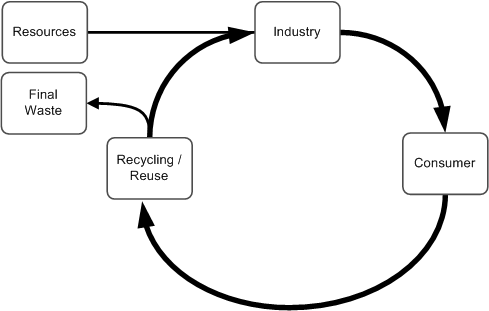On why technology is not the answer.
Julio F. Campos Recently I was asked about which environmental friendly technologies or products we need to invent for a more sustainable society . Although a simple question, with a simple answer but complex explanation, it is indeed the single most important question that one could ask. The answer is plain simple: none. The reason behind both the question and the answer, however, demands a not so simple explanation. Let's start with the question that is the root of what was asked: Why do we need more technology? The concept that the technology development could improve human society development was introduced in the first two decades of the twentieth century and later used to describe the works of the economist Thorstein Bunde Veblen. Its idea was resumed by the engineer William H. Smyth with the introduction of the technocracy concept, which was could be resume to "the rule of the people made effective through the agency of their servants, the scient
